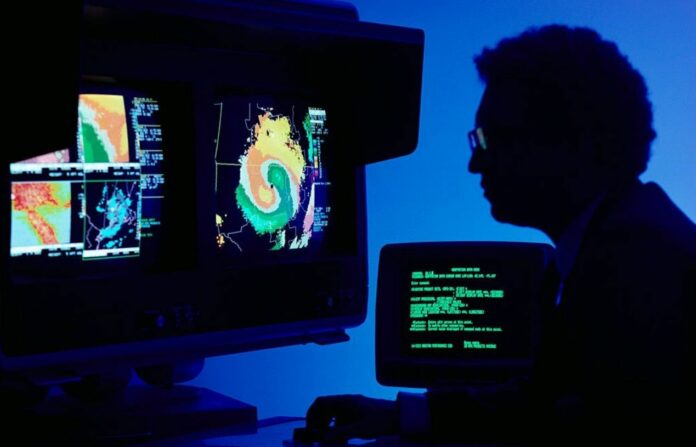Solving The Mysteries Of Extreme Weather: How A Century-Old Storm Is Providing Clues
Scientists have made a breakthrough in understanding the risks associated with extreme weather patterns by analyzing data from a 120-year-old storm that battered the United Kingdom.
This storm, known as Storm Ulysses, produced some of the strongest winds ever seen in Britain, according to the research team who recovered the old weather records.
By digitizing hand-written weather data recorded after the storm hit the UK in February 1903, scientists have unlocked valuable information about one of the most severe storms to have hit the British Isles. This data will allow experts to better understand the risks posed by extreme weather events such as storms, floods, and heatwaves, both now and in the future.
With this information, researchers can continue to explore and analyze past weather patterns to better understand the potential risks of extreme weather events.
Climate scientist Professor Ed Hawkins, from the University of Reading and the National Centre for Atmospheric Science, said:
“We knew the storm we analysed was a big one, but we didn’t know our rescued data would show that it is among the top four storms for strongest winds across England and Wales.
“This study is a great example of how rescuing old paper records can help us to better understand storms from decades gone by. Unlocking these secrets from the past could transform our understanding of extreme weather and the risks they pose to us today.”
The study published in the journal Natural Hazards and Earth System Sciences reveals that a significant number of storms that occurred before 1950 have been left unstudied due to the fact that much of the data exists only on paper, stored away in archives around the world.
However, a team of scientists, led by Professor Hawkins, has taken on the task of delving into these archives and converting hand-written observations relating to Storm Ulysses from paper to digital format. This particular cyclone caused multiple fatalities and widespread damage to infrastructure and ships when it swept across Ireland and the UK between the 26th and 27th of February in 1903.
By utilizing this newly digitized data, the research team was able to employ techniques similar to those used in modern weather forecasting to accurately simulate the storm and assess the strength of Storm Ulysses’ winds. To further support their findings, the team compared their results with independent weather observations, such as rainfall data, as well as photographs and written accounts from 1903 that detailed the destruction caused by the cyclone.
The reanalysis is useful for assessing the hazards of severe weather occurrences since it revealed that the winds sustained in certain regions during Storm Ulysses were more than once per 100 years. Knowing about such a rare occurrence offers important insight into the possible harm that a comparable storm can inflict today or in the future.
The storm that occurred in 1903 has been given the name “Storm Ulysses.” This name was chosen due to the significant damage caused to thousands of trees in Dublin, as mentioned in James Joyce’s novel “Ulysses.”
Professor Ed Hawkins has once again led the recovery of weather records, this time related to Storm Ulysses. However, this is not the first time the University’s Department of Meteorology and 16,000 volunteers have worked together to restore historical weather data. In 2022, they were able to recover 5.2 million rainfall observations dating back as far as 1836, providing valuable information for researchers and meteorologists.
Source: 10.5194/egusphere-2022-1045
Image Credit: Getty
